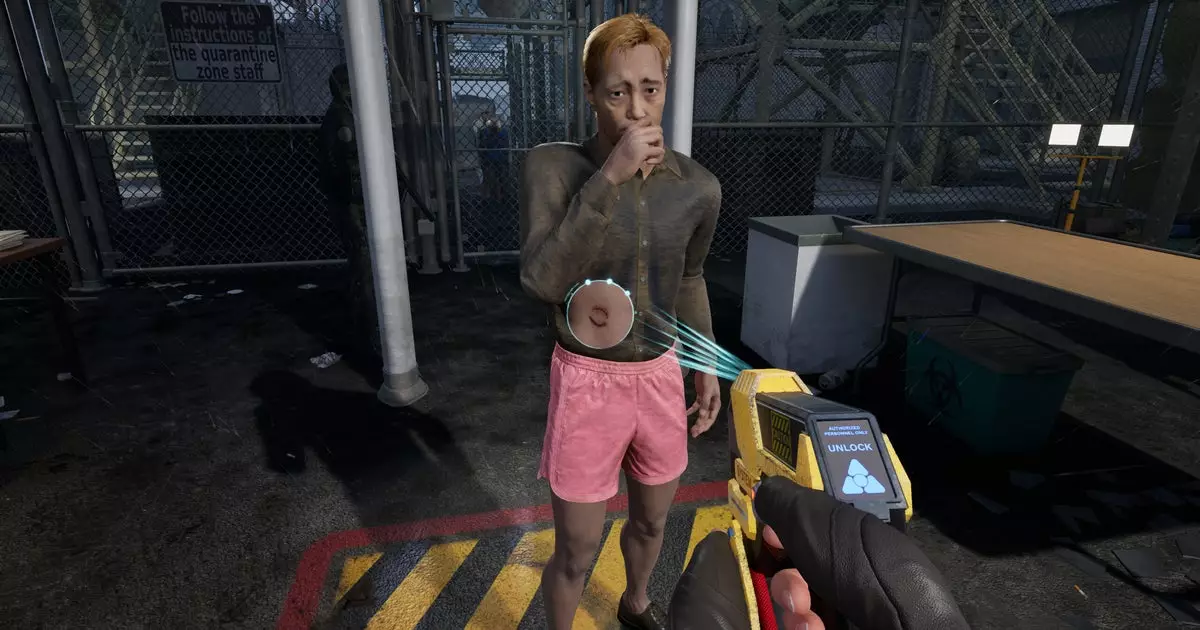Most zombie-themed narratives tend to emphasize visceral horror, relentless action, and dystopian chaos. However, beneath the grim exterior lies an often-overlooked arena for exploring profound questions of morality and human resilience. Quarantine Zone: The Last Check exemplifies this shift—it challenges players not just to fend off hordes of the undead but also to scrutinize human behavior amidst catastrophe. In doing so, it elevates the genre from mere escapism to a platform for introspective storytelling, forcing us to confront uncomfortable dilemmas about our judgments, priorities, and the essence of humanity.
Unlike conventional survival games that prioritize resource collection and combat, this title immerses players in the moral gray zone of checkpoint management. Here, every decision bears weight: Should you quarantine a seemingly healthy individual or risk missing a potential carrier? Is it acceptable to dismiss someone because their symptoms seem benign? These choices mirror real-life issues faced at borders and checkpoints during crises, highlighting how easily fear and suspicion can distort our sense of justice. The game smartly critiques these societal mechanisms, revealing the fragile line between safety and prejudice.
Complexity of Human Judgment in Critical Moments
What sets Quarantine Zone apart is its emphasis on diagnostic subtleties—using UV flashlights, thermometers, and manual inspections—to discern infected individuals. This layered approach reflects real-world challenges in disease containment, where symptom overlap and limited resources complicate decision-making. The game convincingly portrays how a single incorrect judgment can lead to tragic consequences, whether through enabling a pathogen to spread or unjustly condemning innocent civilians.
This heightens the tension intrinsic to such roles, shining a spotlight on the importance—and fallibility—of human judgment. Players are forced to balance empathy with prudence, questioning whether their actions are motivated by genuine concern or driven by fear-induced prejudice. The stakes are high: a wrong move might cost lives or erode communal trust. This layered complexity prompts players to ponder the ethical weight of their choices and recognize the profound influence fear has on decision-making in crisis.
The Strategic Depth of Morality and Survival
Overall, the game’s mechanics—resource management, wave defense, and dynamic threat assessment—push players to develop strategic solutions that are as morally challenging as they are tactically sound. Maintaining the checkpoint isn’t merely about fending off zombies; it’s also about managing perceptions, maintaining order, and making snap judgments that can have long-lasting repercussions. The nighttime defense routines, combined with the day-to-day inspection grind, underscore how survival is intricately tied to moral clarity—or the lack thereof.
What I find compelling is the game’s commentary on the perilous nature of authoritarian decisions during chaos. It questions whether rigid protocols and suspicion truly serve safety or merely serve to dehumanize. In this context, every person’s fate hinges on a fragmented mixture of evidence, intuition, and the unavoidable biases that come with high-stakes environments. The game subtly critiques how societal structures become strained under pressure, illustrating how easy it is to slip into paranoia rather than compassion.
Questioning Reality and Humanity in a Disintegrating World
An unexpected, whimsical twist—the idea of differentiating between Buster Keaton and Barney the Dinosaur—serves as a satirical reflection on the importance of perception. In an environment where appearances carry life-or-death weight, the game provocatively suggests that sometimes, our judgments are as arbitrary as confusing Buster Keaton with a dinosaur—highlighting how superficial assessments can lead to absurd outcomes. This analogy exemplifies the importance of deeper insight and critical thinking in decision-making, especially in scenarios where appearances distort reality.
Ultimately, Quarantine Zone isn’t just a game about surviving zombies; it’s an intense exploration of morality under pressure. It underscores how humanity’s greatest strength and weakness lie in our capacity for judgment—how we interpret threats, trust others, and ultimately define what it means to be human in a hostile world. In embracing these complexities, the game offers a potent reminder that survival isn’t just about fighting the undead but about safeguarding the moral fabric that holds society together.

